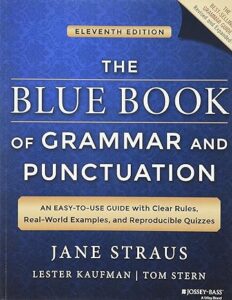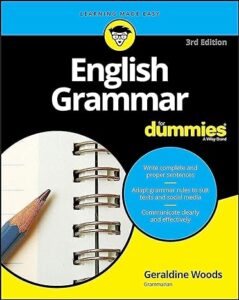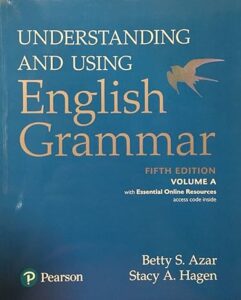Allot vs A lot: What’s the Difference?
Ever found yourself pausing mid-sentence, puzzling over “affect” vs. “effect” or “there” vs. “their”?
Don’t sweat it…
You’re in good company.
*Even grown-ups get tripped up by these word twins.
Now, let’s tackle another pair that often gets jumbled:
“Allot” and “A lot.”
In short…
Let’s jump in and get to know these words better. Next time they pop up, you’ll be super sure about using them just right!
SHORT ANSWER
“Allot” is a verb that means to give or assign a share, a task, or something else to someone. For example, “The teacher allotted each student a chapter to read.”
“A lot” is a phrase used to indicate a large amount or number of something. It’s often used informally to mean ‘much’ or ‘many,’ like “I have a lot of homework tonight.”
So, “allot” is about distributing or assigning something, while “a lot” is about having a large quantity or number of something.
Definition of “Allot”
The word “allot” is a verb, and it means to distribute or assign something to someone or for a specific purpose. When you allot something, you’re setting it aside or giving it out in portions.
This word is often used in formal or official contexts, like in schools, offices, or in planning events.
Contexts in Which “Allot” is Typically Used
In Education:
Teachers often allot specific chapters for students to read or give them a certain amount of time for an activity.
In Workplaces:
Managers might allot tasks to team members based on their skills and workload.
In Budgeting:
Financial planning often involves allotting funds to different departments or for various expenses.
In Event Planning:
Organizers allot time slots for different speakers or activities.
In Cooking:
Recipes might require you to allot ingredients in specific quantities.
In Scheduling:
People often allot time for meetings, workouts, or relaxation.
In Gardening:
Gardeners might allot sections of their garden for different types of plants.
In Sports Coaching:
Coaches allot practice time for different skills or drills.
In Art Projects:
Artists allot different colors or materials for various parts of their work.
In Gaming:
Gamers might allot time for different levels or stages of a game.
10 Ways to Use “Allot” in Your Daily Grind
“I’ll allot two hours for completing my math homework tonight.”
“Our teacher allotted each group a different topic for the project.”
“I need to allot some funds for my weekend trip.”
“Let’s allot fifteen minutes for brainstorming ideas in the meeting.”
“I always allot a small portion of my lunch for a sweet treat.”
“My coach has allotted more time for strength training this season.”
“We should allot each band member a solo moment in the concert.”
“I’m going to allot Sunday afternoons for learning to play the guitar.”
“Let’s allot a section of our backyard for a vegetable garden.”
“Our parents allotted each of us specific chores around the house.”
Definition of “A lot”
“A lot” is a phrase used to describe a large quantity, amount, or number of something. It’s a way to express that there is much of something or many of something.
This phrase is very common in everyday language and is used in informal settings.
Unlike “allot,” which is a verb, “a lot” is a phrase that can act as an adverb or a noun.
For example
“I have a lot of books in my collection.”
(Here, “a lot” describes the large number of books.)
“She talks a lot about her adventures.”
(In this case, “a lot” describes the frequency or extent of her talking.)
How to Use “A lot” in Ordinary Life
Talking About Hobbies:
“I read a lot in my free time.”
Describing Food Preferences:
“I like pasta a lot.”
During Social Interactions:
“We hang out a lot on weekends.”
In Expressing Gratitude:
“Thanks a lot for your help!”
When Planning:
“I have a lot to do before the party.”
In Sharing Experiences:
“I travel a lot for work.”
During School Discussions:
“This subject requires a lot of study.”
In Giving Feedback:
“I enjoyed your presentation a lot.”
When Reflecting on Changes:
“I’ve changed a lot over the last year.”
In Everyday Conversations:
“It rained a lot yesterday.”
Tips for Distinguishing Between “Allot” and “A lot”
| Feature | Allot | A lot |
| Part of Speech | Verb | Phrase |
| Meaning | To distribute or assign | A large number or amount |
| Example | “She allotted each student a task.” | “There were a lot of students in the hall.” |
| Usage in Sentence | Action or process | Describing quantity |
| Synonyms | Assign, distribute | Many, much |
| Mnemonic | Double ‘L’ for dividing | Space between ‘a’ and ‘lot’ |
| Formality | More formal, specific | Informal, general |
| Variants | Allotted, allotting | — |
| Context | Planning, organizing | General description |
| Collocations | Allot time/resources | A lot of time/things |
List of Sources to Improve Your Grammar
For those who want to dive deeper into the fascinating world of language and usage, here are five highly recommended books that can help improve your grammar and understanding of English.
“The Blue Book of Grammar and Punctuation” by Jane Straus, Lester Kaufman, and Tom Stern.

A comprehensive guide for beginners and experts alike, covering grammar, punctuation, and usage.
“Grammar for Dummies” by Geraldine Woods.

Part of the popular ‘For Dummies’ series, this book offers straightforward, easy-to-understand advice on improving grammar, punctuation, and sentence structure.
“A Dictionary of Modern English Usage” by H.W. Fowler.

This classic guide, first published in 1926, remains a valuable resource for understanding the nuances of English usage. Fowler’s work is known for its wit, wisdom, and common-sense advice on language.
“The Cambridge Grammar of the English Language” by Rodney Huddleston and Geoffrey K. Pullum.

This comprehensive reference book offers a detailed analysis of grammatical structures and is ideal for those seeking an in-depth understanding of English grammar.
“Understanding and Using English Grammar” by Betty Schrampfer Azar and Stacy A. Hagen.

This book is particularly useful for English language learners, offering clear explanations, lots of practice exercises, and a focus on practical usage.
These books provide a range of perspectives and levels of depth in exploring English grammar and usage. Whether you’re a beginner looking to understand the basics or an advanced learner aiming to refine your skills, these resources offer valuable insights and practical advice.
